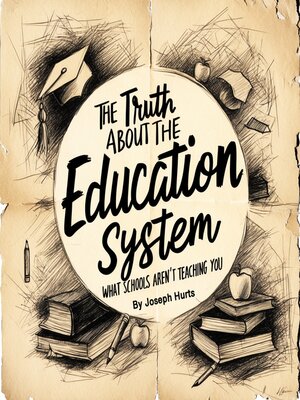The Truth about the Education System
audiobook (Unabridged) ∣ What Schools Aren't Teaching You
By Joseph Hurts

Sign up to save your library
With an OverDrive account, you can save your favorite libraries for at-a-glance information about availability. Find out more about OverDrive accounts.
Find this title in Libby, the library reading app by OverDrive.



Search for a digital library with this title
Title found at these libraries:
| Library Name | Distance |
|---|---|
| Loading... |
This audiobook is narrated by a digital voice.
The modern education system that governs how millions of students spend their formative years was not designed to maximize human potential or foster critical thinking, but rather to produce compliant workers for an industrial economy that required standardized, predictable, and obedient employees. Understanding the origins and underlying assumptions of contemporary schooling reveals how educational institutions continue to reflect nineteenth-century industrial needs rather than twenty-first-century learning requirements or human development principles.
The historical foundations of mass public education emerged during the Industrial Revolution when factory owners and government officials recognized the need for workers who could follow instructions, work in synchronized groups, and accept hierarchical authority structures without question. The Prussian education model that influenced American schooling was explicitly designed to create obedient citizens and efficient workers rather than independent thinkers or creative innovators. This industrial model emphasized punctuality, conformity, and repetitive tasks that would prepare students for factory work while discouraging questioning of authority or independent problem-solving.
The age-based grade system that organizes students by birth year rather than ability, interest, or developmental readiness reflects industrial assumptions about standardization and efficiency rather than educational best practices or child development research. This system treats students as products moving through an assembly line, with each grade level representing a station where specific content is supposed to be installed regardless of individual learning styles, prior knowledge, or personal interests. The artificial division of learning into discrete grade levels ignores the reality that human development occurs at different rates and in different ways for different individuals.







